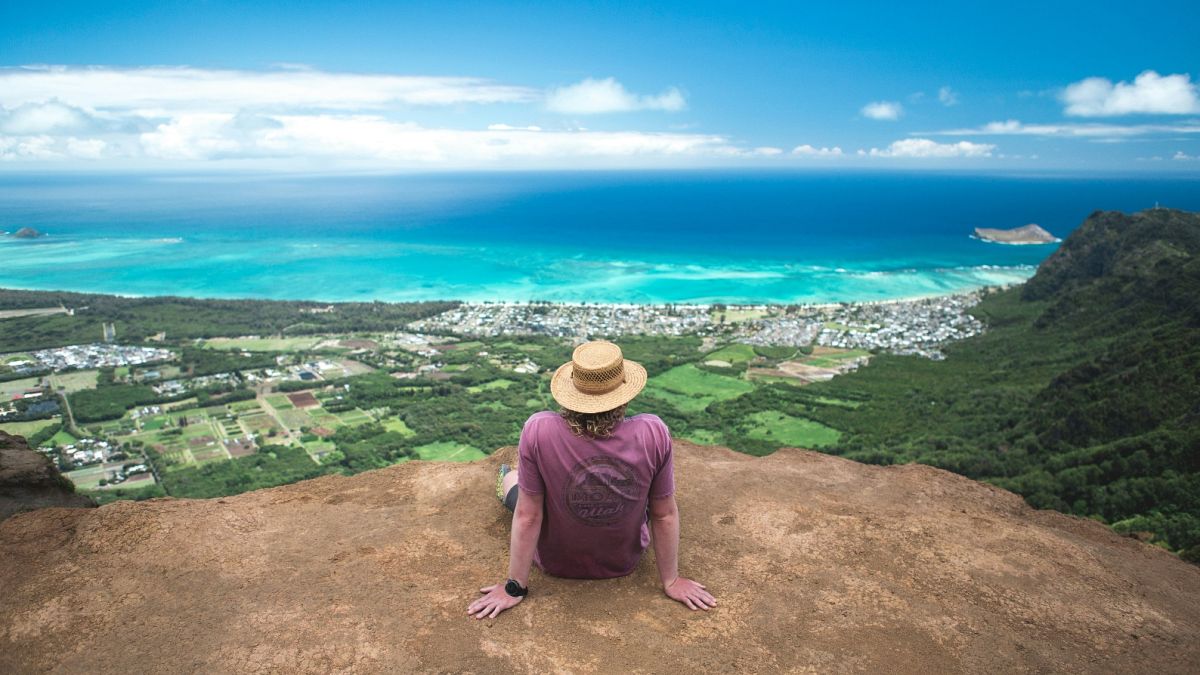Hawaii has long been a ‘bucket list’ destination for travellers the world over - but it’s also well known for having suffered from overtourism in recent years.
Back in 2022, the island state in the Pacific begged visitors to stop coming in such huge numbers, saying thousands of tourists - especially from the US - were making the islands’ roads, beaches and restaurants practically unusable, especially for locals.
That cry appeared to fall on deaf ears, especially since the first TV series of The White Lotus shone even more light on the tropical state as a desirable destination.
Enough is now enough for Hawaii’s leaders. Governor Josh Green has introduced a bill which would impose a $25 (about €23) so-called 'climate fee' on all tourists visiting.
If it successfully passes through committee in the state's legislature, the fee would, according to politicians, be imposed on all travellers upon check-in at hotels or holiday rentals - and is projected to raise around $68 million (€63m) annually, with proceeds used to protect the state's beaches and prevent wildfires.
Speaking to the Wall Street Journal, Green explained: “It's a very small price to pay to preserve paradise”, adding that the tax would help to fund disaster insurance for residents as well as new fire breaks to protect vulnerable communities.
What is the impact of overtourism on Hawaii?
Hawaii is home to just over 1.4 million residents - but, last year, 9.5 million visitors arrived for its pristine beaches, like Kailua and Waikiki.
It’s estimated that tourism brings in around $16 billion (€14.8bn) annually but the nature and infrastructure on the islands suffers..
In 2021, all fully-vaccinated travellers coming from the US were welcomed to Hawaii, allowed to visit without pre-flight testing or quarantine conditions.
However, the state wasn’t prepared for the influx, with highly congested roads, hospitality worker shortages and long restaurant queues.
Some tourists were also seen to disrespect local wildlife, with social media videos emerging of multiple people touching endangered Hawaiian monk seals as well hiking on forbidden trails like Diamond Head. That destination has since been forced to implement a reservation-only booking system to curb visitor numbers.
At the time, Maui’s mayor reached out to airlines to try to get them to help assist the suffering Hawaii by limiting the number of incoming flights arriving there.
“We’re asking for just a pause, if you want to use that term,” Mayor Mike Victorino said, adding, “we don’t have the authority to say ‘stop,’ but we’re asking the powers that be to help us in this sense.”
Residents on Victorino’s island of Maui spoke out, too, with many left shocked following news of a water shortage which saw them possibly fined some $500 (€463) for washing their cars, watering their lawns, alongside a list of other “non-essential” water-related activities, in part due to the amount of tourists.
Hawaii’s novel approach to community-first to island living has allowed it to remain one of the most ecologically diverse places in the world.
On the flip side, it’s often those selling points which suffer the most when the islands are at capacity due to overtourism.
Its leaders are facing an uphill battle to offset both the problems arising from this level of demand - and keeping its natural resources safe.
Recently, fees have doubled for popular attractions for visitors not from Hawaii as well as shuttle buses to reduce the strain on public transport.
Snorkelling at Oʻahu’s famous Hanauma Nature Bay now costs €20 instead of €10 and many local councils have long been touting the idea of a “visitor impact fee” for other attractions, too.
Those moves, though, have yet to reveal whether charging more will equal a less heavily visited island with a whole host of problems currently difficult to solve.
Will Hawaii’s climate fee happen?
While there are many supporters of the climate tax who say it is an absolute necessity in order to help cover the damage visitors wreak on the state's fragile ecosystem, there are detractors too.
Some hoteliers and many others dependent on tourism fear the proposed new fees will discourage visitors - and make their livelihoods more difficult.
The bill, known as HB2406, is currently working its way through Hawaii's legislature - and, if it wasn’t to pass, it wouldn’t be the first time a similar situation has happened.
Last year, a similar proposal to charge tourists a $50 (€46) fee to access state parks and beaches fell at the last hurdle during a legislative session.
Since it failed, Governor Josh Green ploughed on regardless, rebranding the proposal as the ‘climate fee’.
Other legislators are also currently considering a plan to raise the state’s hotel tax - one of the highest in all of the United States.
Where else implements similar climate fees?
With much of the world facing a climate emergency, Hawaii is perhaps unsurprisingly not the only tourist hotspot to consider or impose a climate fee on visitors.
New Zealand has charged international visitors a flat fee of around €19 to help pay for conservation projects and infrastructure since 2019.
Many other nations charge a fee to prevent overtourism rather than climate impact, including popular destinations like Venice, Barcelona and Bali.
Greece, though, has this year followed New Zealand’s lead, by introducing a new 'climate crisis resilience fee' which replaces the country’s previous hotel tax.
The fee varies from a few cents in low season and at low-end hotels, rising to around €10 for five-star hotels in peak season.
The government in Greece felt they were forced to implement the levy, following historic natural disasters there last summer, which included record rainfall and deadly flooding alongside a massive heatwave which caused catastrophic wildfires.


